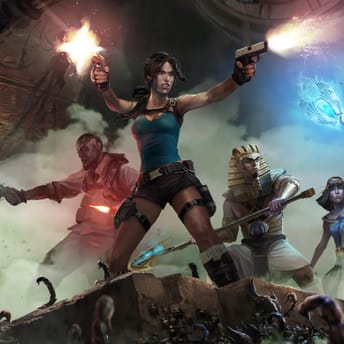Microsoft Unveils A ‘Breakthrough’ generative AI Model for Game Development

|
|
Key points
- Microsoft has unveiled Muse, a generative AI model designed to assist game developers.
- Muse was created in collaboration with Ninja Theory.
- AI created by Microsoft Research in Cambridge was trained on the multiplayer battle arena game Bleeding Edge.
Microsoft has unveiled Muse, a generative AI model designed to assist game developers and enhance gameplay experiences. Developed by Microsoft Research in Cambridge in collaboration with Ninja Theory (Enslaved, DmC, Hellblade franchise), Muse was trained on the multiplayer battle arena game Bleeding Edge.
A scientific article titled “World and Human Action Models Towards Gameplay Ideation” detailing how Muse works has been published in Nature.
According to the press-release, the model aims to “revolutionize game development” by understanding 3D game environments, physics, and player inputs, allowing AI to generate gameplay in a way that maintains consistency with established mechanics.
Microsoft claims Muse represents a “breakthrough” in prototyping gameplay ideas, introducing new content into existing games, and even player-driven AI-assisted content creation. Another use case mentioned in the anouncement is the game preservation—the company is exploring Muse’s ability to revive older games, potentially optimizing them for modern hardware without traditional remastering. This could allow classic titles, previously limited by outdated technology, to be playable on any device that supports Xbox services.
Microsoft has made Muse and its research openly available on Azure AI Foundry, allowing developers to experiment with the technology. The company also plans to launch interactive AI-driven game experiences on Copilot Labs in the near future, letting players experience AI-powered mechanics firsthand.
Microsoft’s Muse AI is not the only major advancement in generative AI for game development. In 2023, Google DeepMind introduced SIMA (Scalable Instructable Multiworld Agent), an AI system capable of learning and playing various video games across different genres. Google also showcased AI-generated game prototypes through Google Research’s GamenGEN, a model that recreated games without any traditional game engine, using only observational data.














